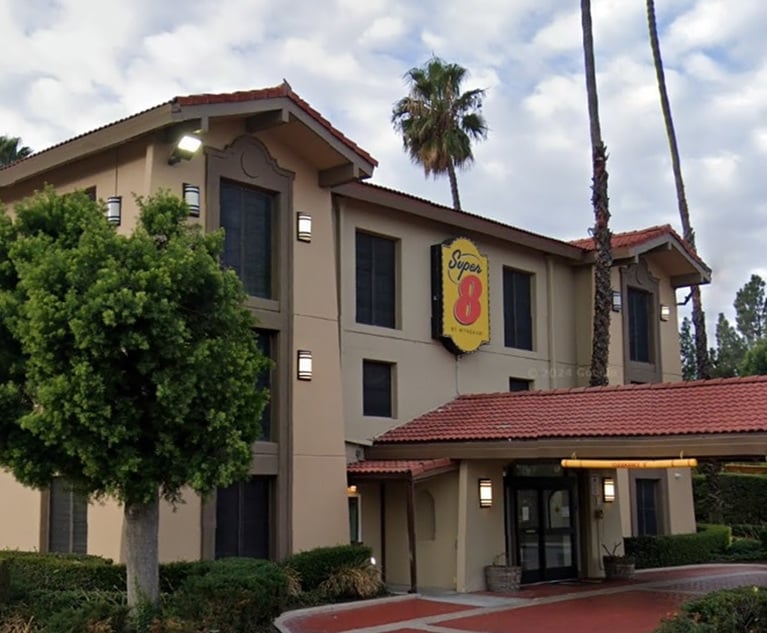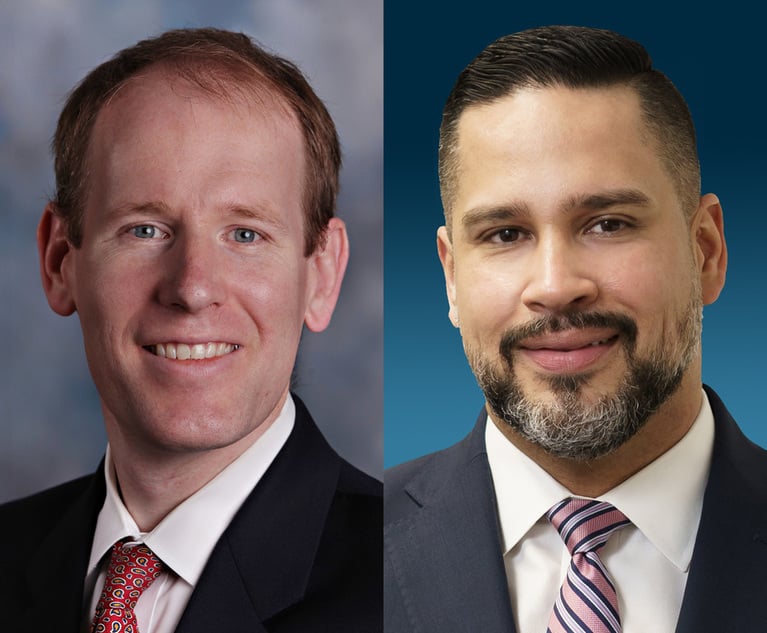Unpublished Opinions for the Week of October 2, 2017
01-2-4298 Kopecky v. Dept. of Cmty. Affairs, N.J. Super. App. Div. (per curiam) (5 pp.) Petitioner appealed from respondent's final decision, following…
September 28, 2017 at 12:30 AM
68 minute read
01-2-4298 Kopecky v. Dept. of Cmty. Affairs, N.J. Super. App. Div. (per curiam) (5 pp.) Petitioner appealed from respondent's final decision, following a hearing, denying him a grant under the Low-to-Moderate Income Program to repair his home. LMIP offered grants to eligible homeowners under the Superstorm Sandy Recovery Program. Respondent denied petitioner's grant application for his failure to submit repair estimates from a LMIP-approved source, and his failure to link his home damage to Superstorm Sandy. On appeal, petitioner contended that he submitted adequate proof his home damage resulted from Superstorm Sandy, and alternatively argued that even if his estimates were inadequate proof, the subsequent condemnation of his home was proof of damage totaling at least $8,000. The court affirmed respondent's decision, noting that petitioner did not allege that he had at least a foot of water in his home. The court further found that none of the repair estimates submitted by petitioner supported their calculations by documentation from sources required by LMIP, nor did any of the estimates tie petitioner's home damage to Superstorm Sandy. The court further noted that petitioner failed to link the condemnation of his home to Superstorm Sandy. The court held that such a link was necessary, as petitioner had failed to repair damage cause by the earlier Hurricane Irene.
01-2-4299 In the Matter of Landis Sewerage Authority NJPDES Permit No. NJ0025364-46537, N.J. Super. App. Div. (per curiam) (11 pp.) Appellant appealed from a denial of its request for administrative hearings concerning fees assessed by the New Jersey Department of Environmental Protection (DEP). The fees related to the 2014 and 2015 assessments imposed under the New Jersey Pollution Discharge Elimination System for appellants' operation of its wastewater treatment plant. The DEP concluded it had correctly applied the rules and fee reports in determining appellant's permit fees in 2014 and 2015. As appellant was essentially challenging duly promulgated regulations and not DEP's application of the regulations, it denied the request for hearing to recalculate the assessed fees. On appeal, appellant argued that DEP misapplied the governing regulations and failed to provide specific answers to questions. The court affirmed holding the fees assessed were adopted as rules and appellant failed to properly appeal those rules. Further, the objections appellant raised did not present material facts requiring adjudication at an administrative hearing. The court noted that a proceeding involving the amount of permit fees was not adjudicative or quasi-judicial; rather, it was legislative in nature and thus, an adjudicative hearing need not be held. Finally, the court held that appellant had 45 days after the publication of the annual fee report to challenge the adoption of the fee and the data used to calculate that fee. As appellant took advantage of all available opportunities and exhausted all of its remedies within the administrative process, the court affirmed denial of an administrative hearing.
01-2-4334 Khoudary v. City of New Brunswick, N.J. Super. App. Div. (per curiam) (14 pp.) Between 1994 and 2011, 44 summonses were issued by respondent for violations of municipal housing ordinances against appellant's properties. Although he denied ownership of the properties, appellant subsequently appeared in municipal court in an effort to reach a global settlement as to all outstanding obligations. Unable to reach an agreement, the municipal court judge determined ownership was no longer an issue as appellant failed to appeal a prior decision and found appellant in contempt of court for willingly and knowingly failing to pay the obligations. Appellant paid the balance and was released from incarceration, but appealed both the commitment order and financial obligations; the law division judge rejected appellant's arguments stating appellant could have requested a stay prior to the appeal. On appeal, the court reversed appellant's conviction, holding the “contempt” proceeding was not initiated by an order to show cause; it was conducted in response to appellant's failure to reach a settlement. The court noted there was no proceeding to determine whether appellant had the ability to comply with the financial obligation and, therefore, no credible determination that his failure to pay was willful. As such, N.J.S.A. 40:49-5 did not grant the municipal court or the law division discretion to incarcerate appellant without satisfying the threshold requirements for punitive or coercive incarceration for failure to pay a fine. However, the court dismissed appeal of the funds paid as not properly before the court.
This content has been archived. It is available through our partners, LexisNexis® and Bloomberg Law.
To view this content, please continue to their sites.
Not a Lexis Subscriber?
Subscribe Now
Not a Bloomberg Law Subscriber?
Subscribe Now
NOT FOR REPRINT
© 2025 ALM Global, LLC, All Rights Reserved. Request academic re-use from www.copyright.com. All other uses, submit a request to [email protected]. For more information visit Asset & Logo Licensing.
You Might Like
View All


Trending Stories
- 1From Hospital Bed to Legal Insights: Lessons in Life, Law, and Lawyering
- 2‘Diminishing Returns’: Is the Superstar Supreme Court Lawyer Overvalued?
- 3LinkedIn Accused of Sharing LinkedIn Learning Video Data With Meta
- 4Delaware Supreme Court Agrees Insurance Dispute Can Be Retried
- 5New Strategies For Estate, Legacy Planning
Who Got The Work
J. Brugh Lower of Gibbons has entered an appearance for industrial equipment supplier Devco Corporation in a pending trademark infringement lawsuit. The suit, accusing the defendant of selling knock-off Graco products, was filed Dec. 18 in New Jersey District Court by Rivkin Radler on behalf of Graco Inc. and Graco Minnesota. The case, assigned to U.S. District Judge Zahid N. Quraishi, is 3:24-cv-11294, Graco Inc. et al v. Devco Corporation.
Who Got The Work
Rebecca Maller-Stein and Kent A. Yalowitz of Arnold & Porter Kaye Scholer have entered their appearances for Hanaco Venture Capital and its executives, Lior Prosor and David Frankel, in a pending securities lawsuit. The action, filed on Dec. 24 in New York Southern District Court by Zell, Aron & Co. on behalf of Goldeneye Advisors, accuses the defendants of negligently and fraudulently managing the plaintiff's $1 million investment. The case, assigned to U.S. District Judge Vernon S. Broderick, is 1:24-cv-09918, Goldeneye Advisors, LLC v. Hanaco Venture Capital, Ltd. et al.
Who Got The Work
Attorneys from A&O Shearman has stepped in as defense counsel for Toronto-Dominion Bank and other defendants in a pending securities class action. The suit, filed Dec. 11 in New York Southern District Court by Bleichmar Fonti & Auld, accuses the defendants of concealing the bank's 'pervasive' deficiencies in regards to its compliance with the Bank Secrecy Act and the quality of its anti-money laundering controls. The case, assigned to U.S. District Judge Arun Subramanian, is 1:24-cv-09445, Gonzalez v. The Toronto-Dominion Bank et al.
Who Got The Work
Crown Castle International, a Pennsylvania company providing shared communications infrastructure, has turned to Luke D. Wolf of Gordon Rees Scully Mansukhani to fend off a pending breach-of-contract lawsuit. The court action, filed Nov. 25 in Michigan Eastern District Court by Hooper Hathaway PC on behalf of The Town Residences LLC, accuses Crown Castle of failing to transfer approximately $30,000 in utility payments from T-Mobile in breach of a roof-top lease and assignment agreement. The case, assigned to U.S. District Judge Susan K. Declercq, is 2:24-cv-13131, The Town Residences LLC v. T-Mobile US, Inc. et al.
Who Got The Work
Wilfred P. Coronato and Daniel M. Schwartz of McCarter & English have stepped in as defense counsel to Electrolux Home Products Inc. in a pending product liability lawsuit. The court action, filed Nov. 26 in New York Eastern District Court by Poulos Lopiccolo PC and Nagel Rice LLP on behalf of David Stern, alleges that the defendant's refrigerators’ drawers and shelving repeatedly break and fall apart within months after purchase. The case, assigned to U.S. District Judge Joan M. Azrack, is 2:24-cv-08204, Stern v. Electrolux Home Products, Inc.
Featured Firms
Law Offices of Gary Martin Hays & Associates, P.C.
(470) 294-1674
Law Offices of Mark E. Salomone
(857) 444-6468
Smith & Hassler
(713) 739-1250







